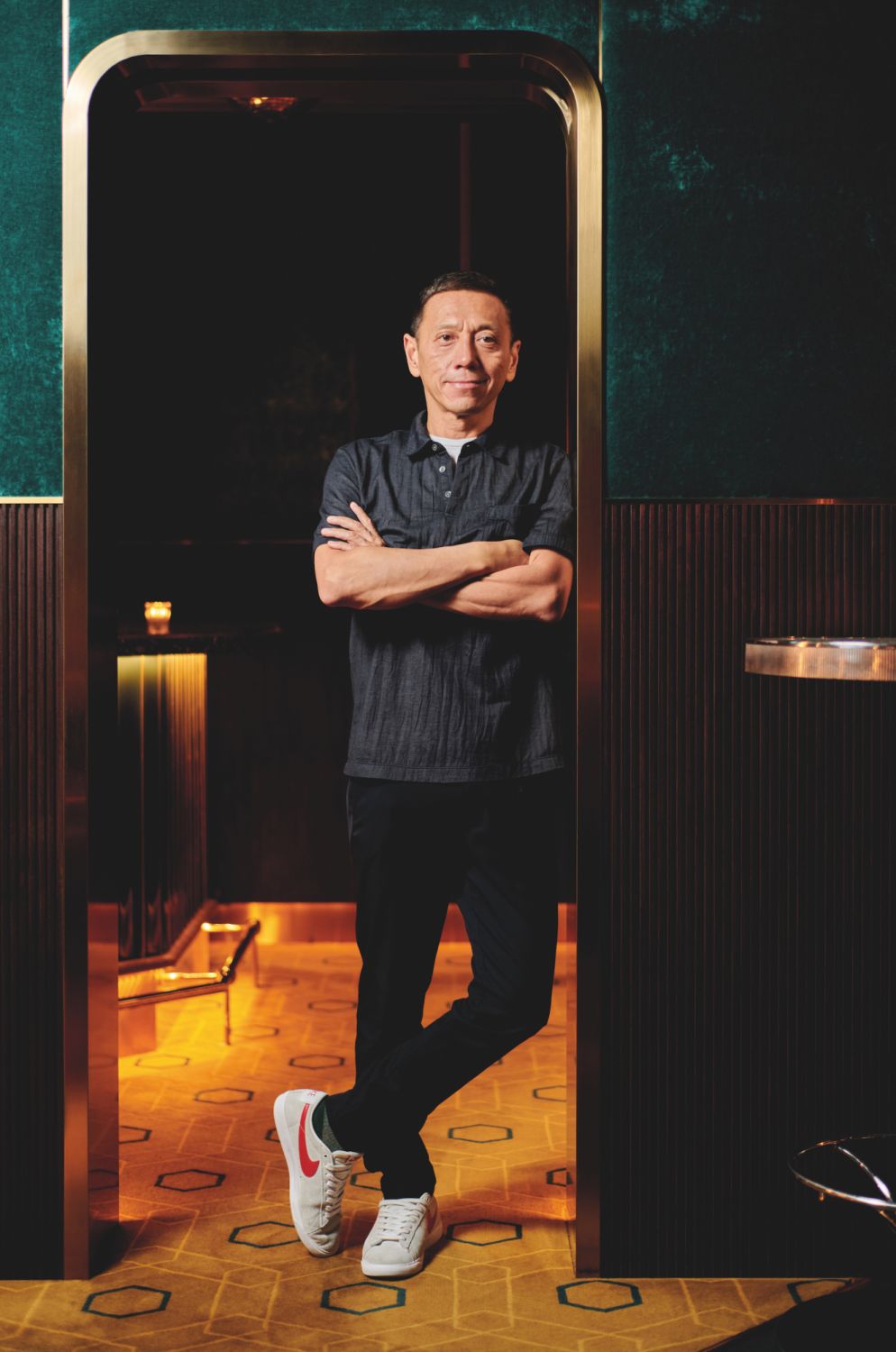The founder of Dragon-i, Cassio and Tazmania Ballroom tells Tatler about the early days of Hong Kong nightlife and how the birth of his daughter changed everything
Have you ever wondered what it would have been like to meet Gilbert Yeung, a Hong Kong nightlife legend, when he was in his 30s and on the cusp of a nightlife revolution in Hong Kong? For years, Yeung’s hotspots Dragon-i, Cassio and Tazmania Ballroom, all places to see and be seen, were where models and moguls converged, celebrities like Snoop Dogg and the late Avicii performed, and where champagne flowed by the caseload.
Now at 54, the entrepreneur behind some of the city’s most iconic venues looks back on the early days of his career and humbly chalks his success up to “luck” and “timing”. A main character in Hong Kong’s party history, Yeung, as you may imagine, has a lot of stories up his sleeve. This week, he shares those of triumph and failure, and how a chance encounter with Pierce Brosnan sparked an idea that would change the city forever.
Describe what you do in one sentence.
Through my business, I make the people of Hong Kong smile.
What was your goal when you launched Dragon-i in 2002?
At that time, I was kind of a naughty boy. I was in my early 30s, and I loved music, I loved my life, and I loved serving people. In the 1990s, [popular Hong Kong nightclub] Club 97 was the place to be. I saw James Bond there: Michelle Yeoh [who starred in Tomorrow Never Dies] asked me to book a table for her there once, and Pierce Brosnan came too. It was then that I thought: when James Bond comes to Hong Kong, there needs to be a sexier, more sophisticated environment with good music, good sound systems and a great mix of people.
Was it hard to be taken seriously at a time when nightlife culture hadn’t really taken off in Hong Kong?
Even though nightlife culture didn’t really exist here, we got lucky. I had the opportunity to do Pink Mao Mao [Yeung and his friend Gordon Lam’s original club concept] at my family’s hotel [the Emperor Hotel in Happy Valley]. We built a strong following on Wednesdays, and we started to cultivate a nightlife culture. Pink Mao Mao was a platform for us, and starting Dragon-i after that was much easier because of it.
What do you put your success down to?
[With our concepts], we were innovative and very forward-thinking. We didn’t mind breaking the rules because we were very young and cheeky. Today, I honestly still don’t think I’m successful. I believe being successful has a lot of layers. You have to be a nice person, a good family man, a good husband and a good dad. For success, I also think you need to be lucky.

